On October 7, the Committee of 100, in cooperation with the U.S. Association of Former Members of Congress (USAFMC), hosted a breakfast briefing on Capitol Hill to examine outcomes from the summit between Presidents Barack Obama and Xi Jinping and assess the impact of this meeting on the direction of U.S.-China relations. This briefing is part of C-100’s national Speakers Forum Series, a high-level platform that addresses major issues in U.S.-China relations and the Asian American community, and is supported in part by the J.T. Tai Foundation.
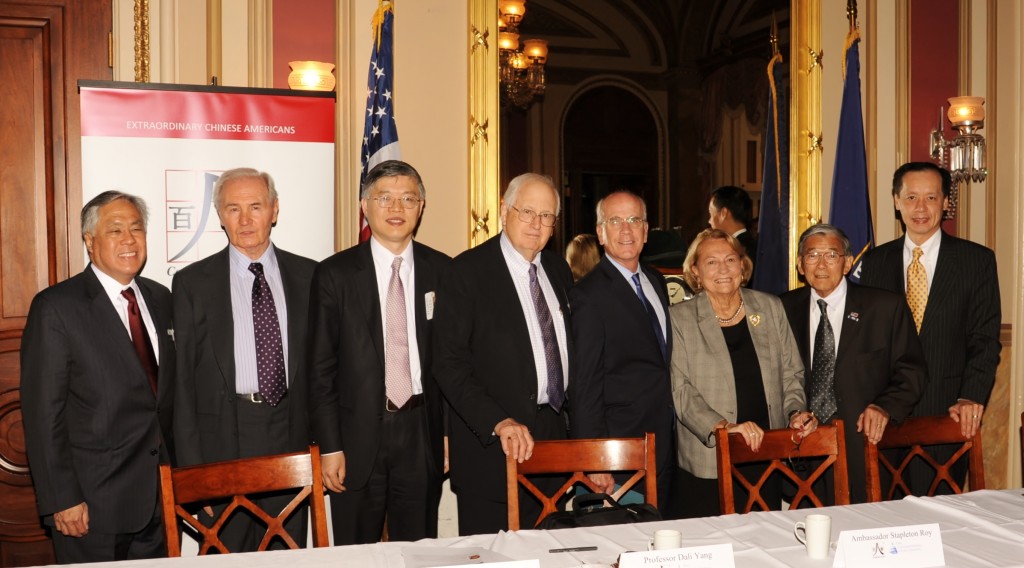 C-100 member Robert Gee; Professor Richard Thornton; C-100 member Dali Yang; C-100 advisor Ambassador Stapleton Roy; Congressman Peter Welch; USAFMC President The Honorable Barbara Kennelly; C-100 advisor The Honorable Norman Mineta; and C-100 Washington, D.C. Regional Co-Chair Ben Wu at the October 7 briefing
C-100 member Robert Gee; Professor Richard Thornton; C-100 member Dali Yang; C-100 advisor Ambassador Stapleton Roy; Congressman Peter Welch; USAFMC President The Honorable Barbara Kennelly; C-100 advisor The Honorable Norman Mineta; and C-100 Washington, D.C. Regional Co-Chair Ben Wu at the October 7 briefing
The briefing began with welcome remarks from USAFMC President, The Honorable Barbara Kennelly, and C-100 member Robert Gee. C-100 member Professor Dali Yang of the University of Chicago opened the panel discussion by highlighting recent developments in U.S.-China relations, most notably President Xi’s visit to the U.S. and the September 2015 Presidential Summit. C-100 advisor and former Ambassador to China Stapleton Roy of the Woodrow Wilson International Center for Scholars emphasized the importance of summits between heads of state as being “action-forcing events that force bureaucracies to look for ways to expand cooperation and to find better ways of dealing with troublesome issues.” Professor Richard Thornton of George Washington University then explained how U.S.-China disagreements over freedom of navigation in the South China Sea will be a major challenge to finding “smoother waters” in the relationship and described the key but sometimes overlooked role that Asian geopolitics plays in U.S.-China relations.
Following the panel discussion, Congressman Peter Welch (VT- At-large District) and Congressman Robert Pittenger (NC-9) provided Congressional perspectives on U.S.-China relations and U.S. foreign policy in Asia, and The Honorable Timothy Roemer, former U.S. Representative for Indiana and U.S. Ambassador to India, explained how Asian countries are closely watching whether the U.S. ratifies the Trans-Pacific Partnership. Congressman Bill Huizenga (MI-2), C-100 Washington, D.C. Regional Co-Chair Ben Wu, and a number of former Members of Congress, senior Congressional staff, and members of the foreign diplomatic corps also participated in the October 7 briefing.
To learn more about the October 7 briefing, check out the Executive Summary here.
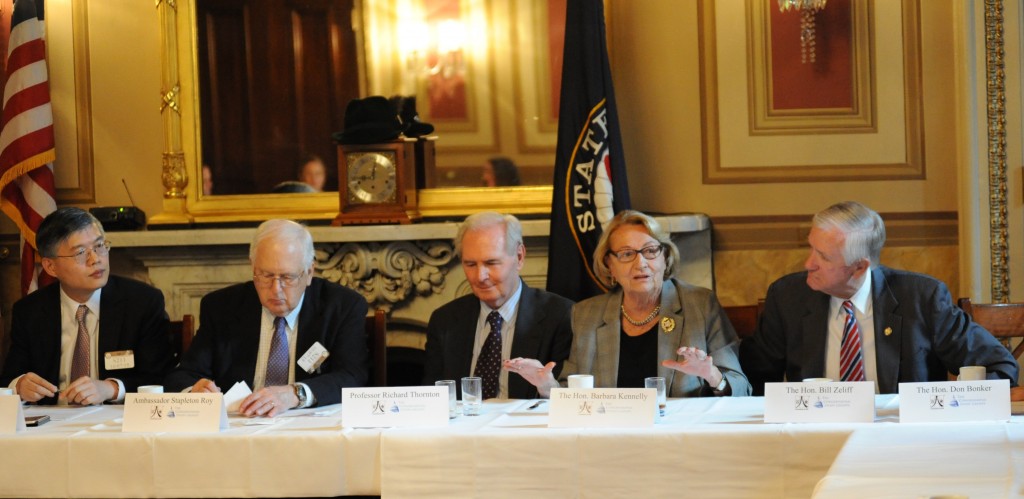 The Honorable Barbara Kennelly, President of the U.S. Association of Former Members of Congress, welcomes the distinguished audience to the October 7 briefing
The Honorable Barbara Kennelly, President of the U.S. Association of Former Members of Congress, welcomes the distinguished audience to the October 7 briefing
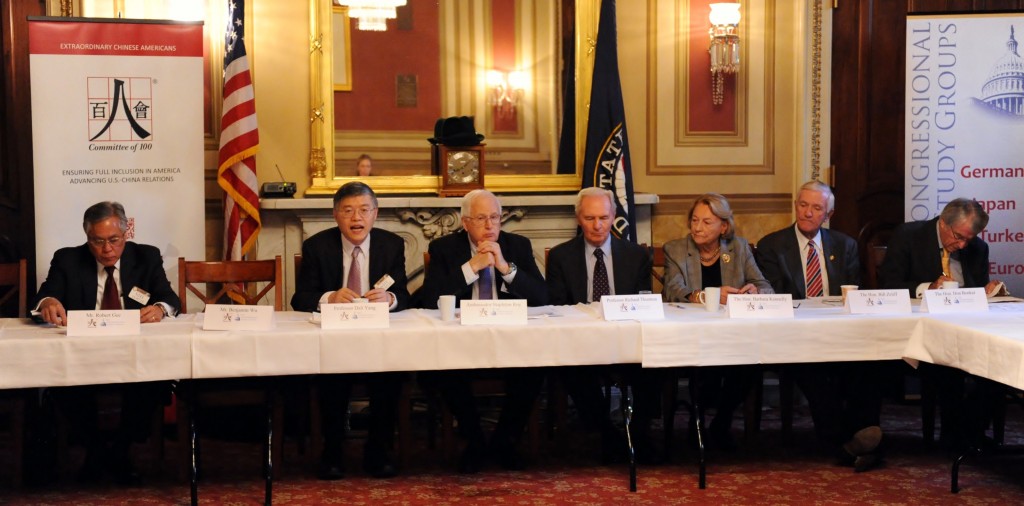 C-100 member Dali Yang sets the context for the October 7 briefing
C-100 member Dali Yang sets the context for the October 7 briefing
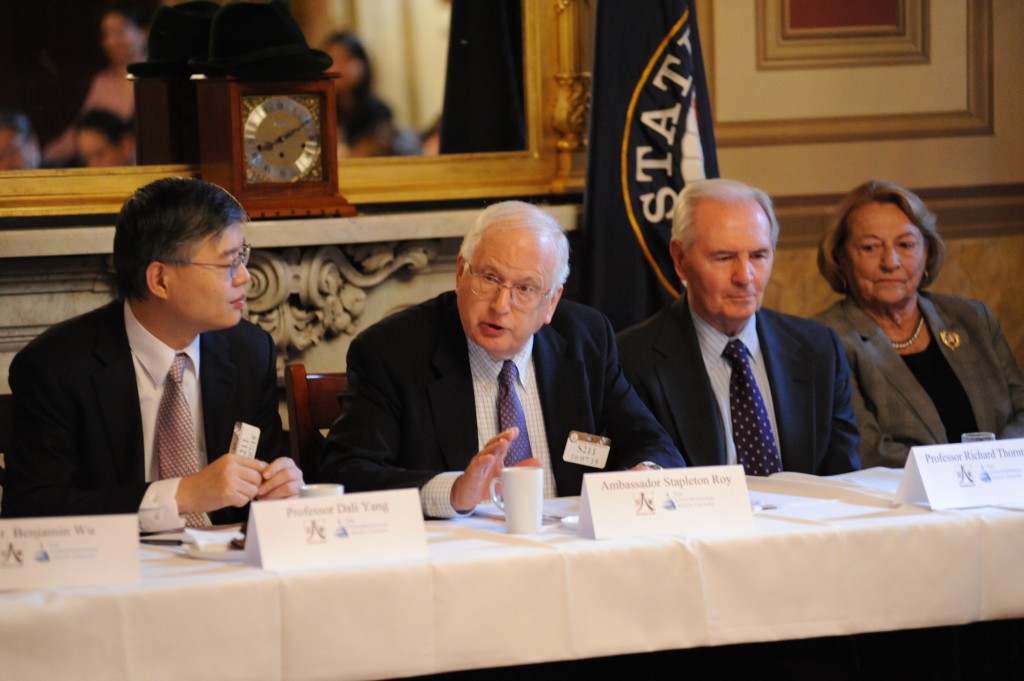 Ambassador Roy offers insights on U.S.-China relations and the September 2015 Presidential Summit
Ambassador Roy offers insights on U.S.-China relations and the September 2015 Presidential Summit
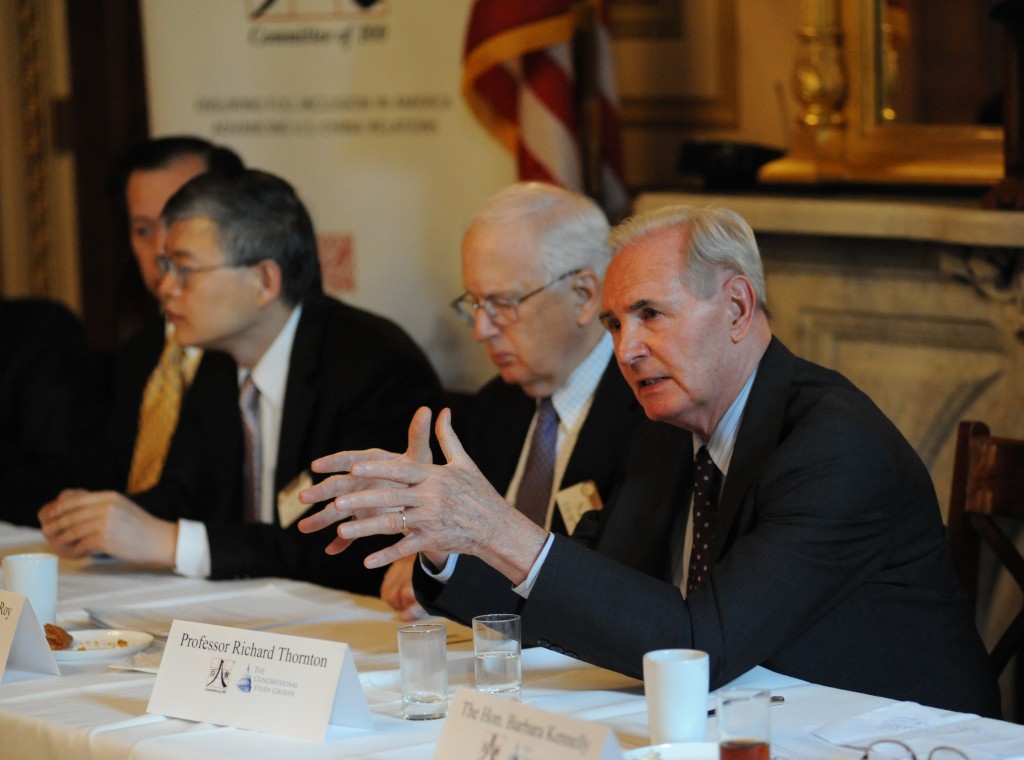 Professor Richard Thornton explains how geopolitics in Asia influence U.S.-China relations
Professor Richard Thornton explains how geopolitics in Asia influence U.S.-China relations
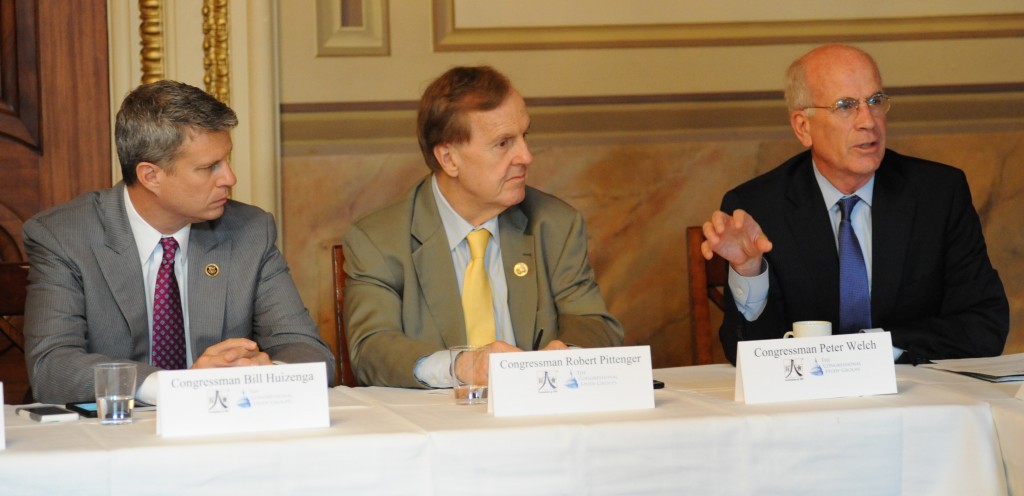 Congressman Peter Welch provides a Congressional perspective on U.S.-China relations
Congressman Peter Welch provides a Congressional perspective on U.S.-China relations
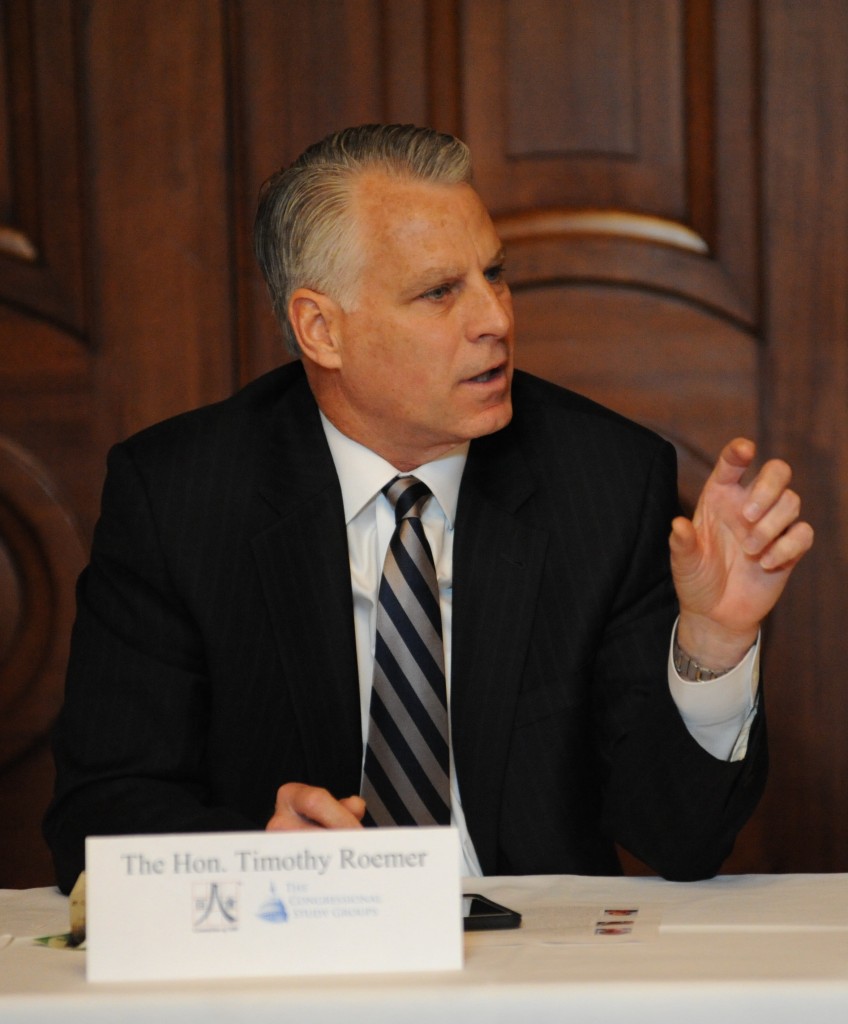 The Honorable Timothy Roemer discusses how Asian countries view the Trans-Pacific Partnership and U.S. economic engagement in Asia
The Honorable Timothy Roemer discusses how Asian countries view the Trans-Pacific Partnership and U.S. economic engagement in Asia
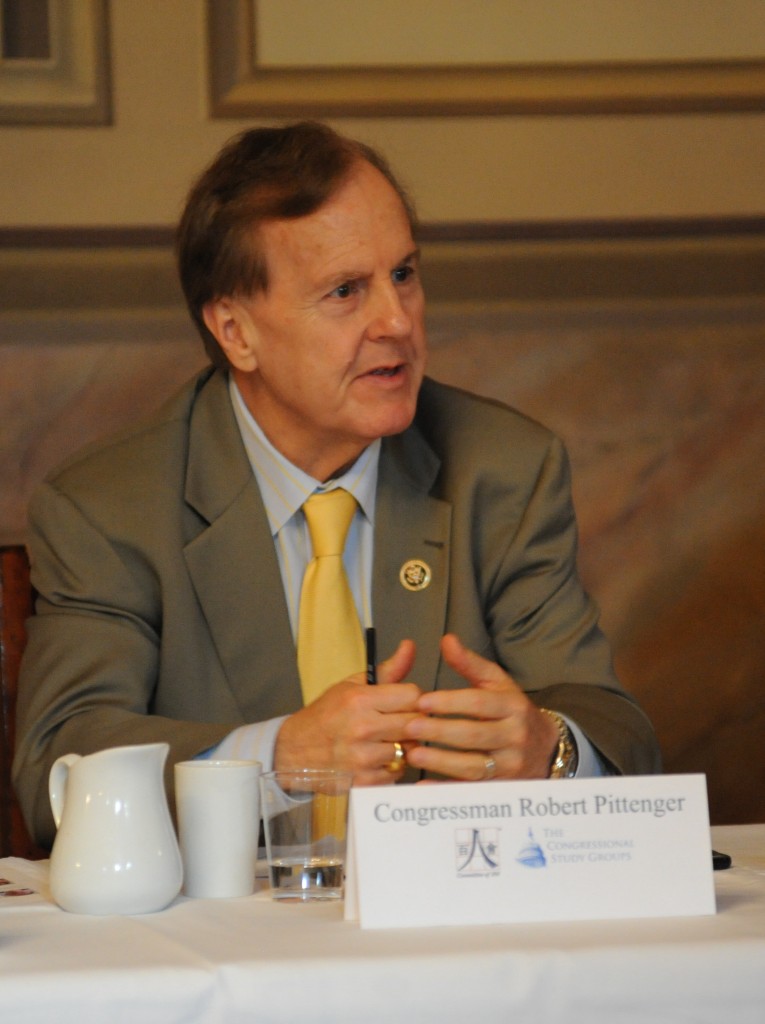 Congressman Robert Pittenger explains Congressional concerns about China’s human rights situation
Congressman Robert Pittenger explains Congressional concerns about China’s human rights situation